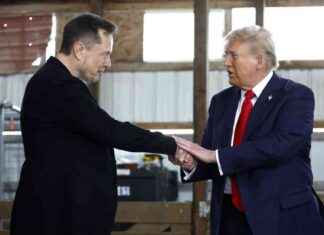WASHINGTON — President Donald Trump’s pick to lead the Department of Veterans Affairs is promising to meet veterans’ health care needs and says dismantling the beleaguered agency or making wide-scale firings isn’t the answer.
During the campaign, Trump described the VA as “the most corrupt” and “probably the most incompetently run” of all federal agencies.
But as nominee David Shulkin, the VA’s top health official, prepared for a Senate hearing Wednesday, the 57-year-old physician was suggesting more modest changes. He was expected to face tough questioning about any plans to work more closely with the private sector and about a persistent backlog in processing disability claims.
“VA is a unique national resource that is worth saving, and I am committed to doing just that,” Shulkin said in prepared remarks obtained by Associated Press. “There will be far greater accountability, dramatically improved access, responsiveness and expanded care options, but the Department of Veterans Affairs will not be privatized under my watch.”
Shulkin, who would be the first nonveteran to lead the government’s second-largest agency, said it was unfortunate that “a few employees” may have tarnished the VA’s reputation.
Trump wants to fire and discipline VA employees, have a commission investigate wrongdoing and create a 24-hour White House hotline to register complaints about the agency.
The VA has nearly 370,000 employees and an annual budget of nearly $167 billion.
Shulkin would be the lone ex-Obama administration official serving in Trump’s Cabinet. As secretary, Betorder he would take over amid a conservative push to privatize government services and partisan battles over Trump’s nominees.
“It will be disappointing if Dr. Shulkin defends the status quo – veterans who took President Trump’s campaign promises about VA reform seriously will be immediately concerned,” said Mark Lucas, executive director of conservative Concerned Veterans for America.
Shulkin is generally supported by the largest veterans’ organizations, who have praised steps begun under President Barack Obama to address the VA’s problems. They oppose greater privatization as a threat to the viability of VA medical centers, which they see as better suited to treat battlefield injuries such as post-traumatic stress disorder.
As undersecretary of health for the agency, Shulkin manages a system responsible for 9 million military veterans in more than 1,700 facilities. He was given responsibility for improving wait times for medical care following the 2014 scandal at the Phoenix VA medical center. Veterans waited months for care even as VA employees created secret waiting lists and other falsehoods to cover up delays.
In his prepared testimony, Shulkin did not rule out closing underused VA facilities and said he would explore “public-private partnerships” to avoid building new medical centers that cost too much or take too long to build. There were widely reported cost overruns at the VA hospital in Aurora, Colorado.
Shulkin also cited Obama administration efforts to combat high rates of suicide by hiring more psychologists and psychiatrists, but he did not specify staffing plans amid Trump’s current federal hiring freeze. An estimated 20 veterans take their own lives every day.
The son of an Army psychiatrist and grandson of a VA pharmacist, Shulkin is a former president of the Morristown Medical Center in New Jersey. He was president and CEO of the Beth Israel Medical Center in New York and chief medical officer at the University of Pennsylvania Health System and Temple University Hospital in Philadelphia.
___
Follow Hope Yen on Twitter at https://twitter.com/hopeyen1
Our editors found this article on this site using Google and regenerated it for our readers.





